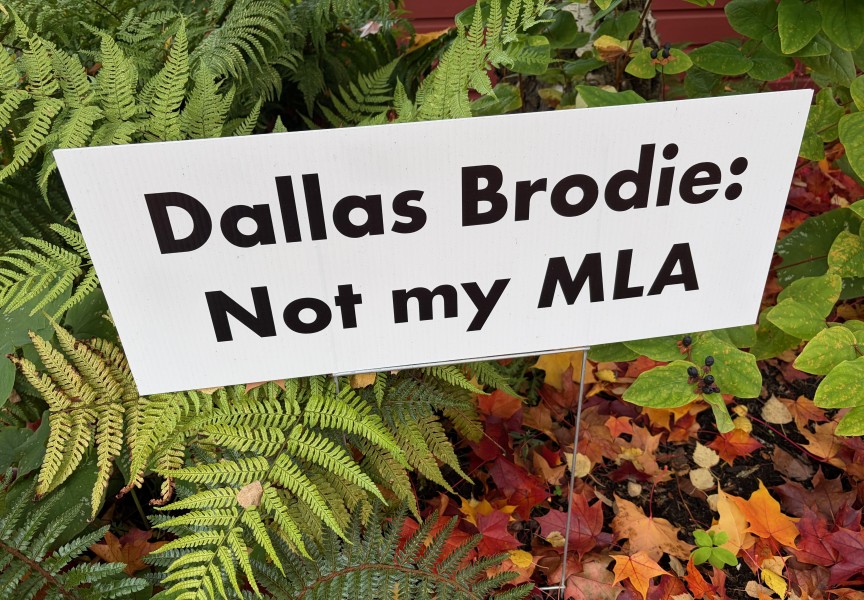For the first time ever, British Columbia's First Nations will be included in a share of the province’s gaming revenue. The announcement came Feb. 19 as part of the provincial government’s Budget 2019.
“Starting April 2019, approximately $3 billion over 25 years will be shared with B.C. First Nations, meaning every First Nation community in B.C. will be eligible for between $250,000 and $2 million annually through the agreement,” stated a provincial government news release.
The funding, made possible through an historic revenue sharing agreement between the province and the First Nations Leadership Council, will allow First Nations to have a stable, long-term funding source to focus on their priorities, which can include health and wellness, housing, infrastructure, training, environmental protection, economic development, governance capacity and other uses.
“Today was an awesome day,” said NTC President Judith Sayers in a social media post. She went to say that the province’s 203 First Nations would receive proceeds that amounts to approximately seven per cent of the gross annual gaming revenue for the next 25 years.
“I started work on the First Nation Gaming Committee in 2006 when I was on the Task Group of the First Nations Summit,” Sayers told Ha-Shilth-Sa.
They pressed the government for a meaningful gesture of forming a new relationship with the province's First Nations.
“We did a lot of work going to see the (former) Premier Gordon Campbell, Minister of Indigenous Relations Mike de Jong and Finance Minister Carole Taylor,” she recalled, but there was no progress.
“We had a comprehensive proposal on how we set up the distribution and how the money could be used,” she continued.
At that time the First Nation Gaming Committee requested three per cent of the net revenue of BCLC (British Columbia Lottery Corporation) as that was the proportion of the provincial population First Nations represented.
“We had called it a community development fund and we had worked closely with the First Nations in Ontario, using their model to put ours together,” Sayers said, adding that it was a good proposal.
Provinces across Canada have been revenue sharing from gaming with First Nations for years, but not British Columbia.
“We told the premier, Mike de Jong and Carole Taylor that it was low hanging fruit and this would fulfill the revenue sharing that we had agreed to in the New Relationship Vision,” Sayers stated, but the former premier and his cabinet had nothing to offer.
“When Christy Clark became premier she actually laughed when it was brought it up to her,” Sayers stated. “The New Relationship was not something she was interested in and relations with First Nations became very strained and did not progress at all.”
According to Sayers, when the NDP government was elected in 2017, the ministers of Finance and Indigenous Relations and Reconciliation had in their mandate letters to negotiate gaming revenue sharing with First Nations. They went to work and began talks with First Nations Gaming Commission negotiators, Grand Chief Joe Hall and Jay Johnson.
“I have been involved for 13 years on the Gaming Committee and then appointed as a Gaming Commissioner,” said Sayers. She thanked Joe Hall and Jay Johnson for their work.
According to the premier’s office, sharing revenue with First Nations communities is an important step that puts reconciliation into action.
“This agreement is part of B.C.’s commitment to create a new fiscal relationship with First nations, recognizing self-government and self-determination,” they wrote.
“With this new source of funding, First Nations communities will have added resources to invest in important priorities that help communities flourish,” said Scott Fraser, Minister of Indigenous Relations and Reconciliation. “We are proud to put reconciliation into action by supporting the right of every First Nation in B.C. to self-government and self-determination.”
Sayers says that the BC First Nations Gaming Commission, under the direction of the Leadership Council, will establish a company that will distribute the funding according to a formula approved by the First Nations Summit, the Union of British Columbia Indian Chiefs and the BC Assembly of First Nations.
They agreed that half of the funds received will be divided equally among the 203 BC First Nations. Forty percent of funds received will be divided on a per capita basis, while the remaining 10 percent will go to rural and remote communities. The only limitation on this money is that it cannot be given out to members as a per capita distribution.
“Once we have a distribution company in place, the province will transfer this year’s money,” said Sayers. She is expecting the first transfer to take place this fiscal year.







